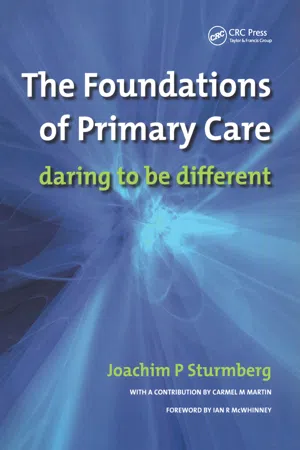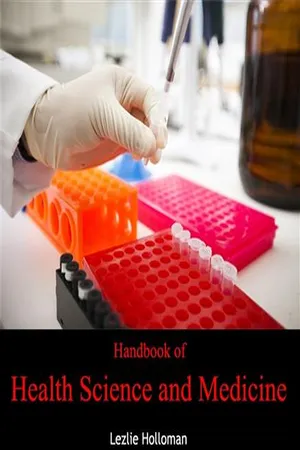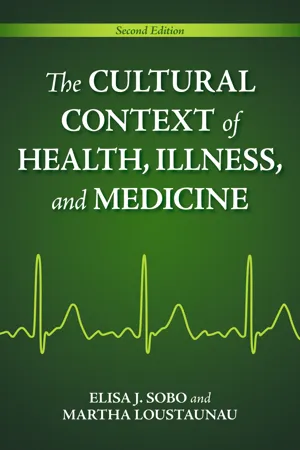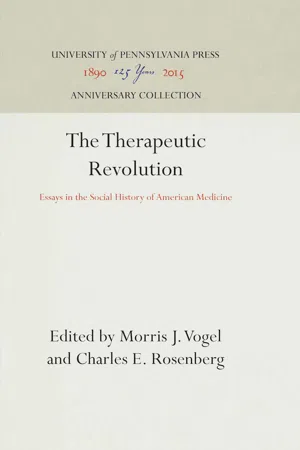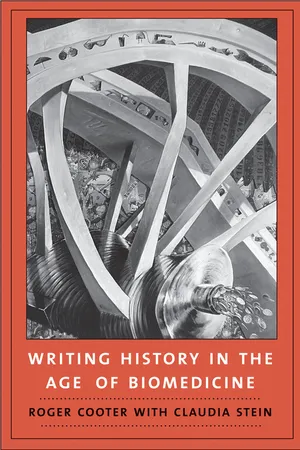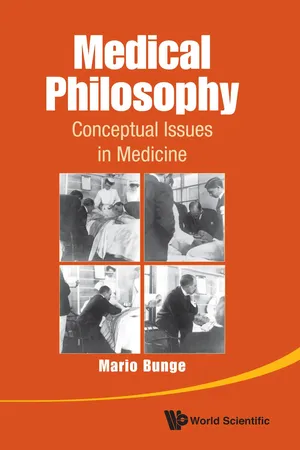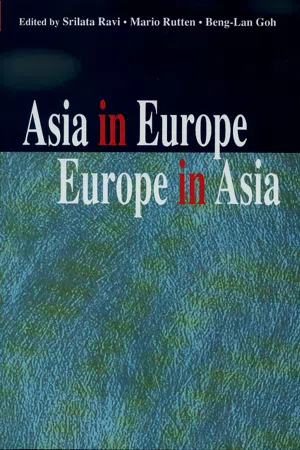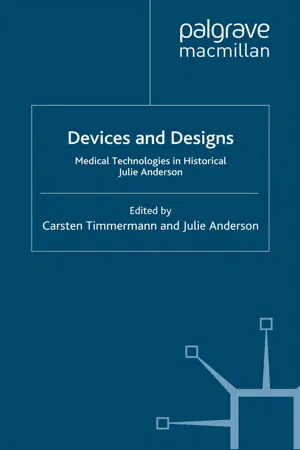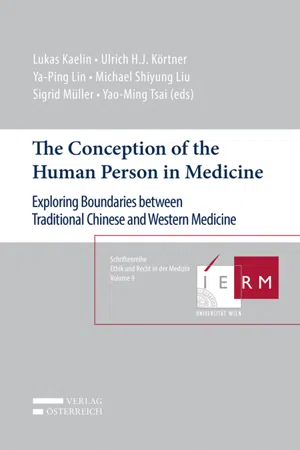History
Modern Medicine
Modern medicine refers to the current practice of healthcare that integrates advanced technology, evidence-based research, and a holistic approach to patient care. It encompasses a wide range of medical specialties, including surgery, pharmacology, and preventive medicine, and is characterized by a focus on disease prevention, early diagnosis, and personalized treatment plans.
Written by Perlego with AI-assistance
Related key terms
1 of 5
10 Key excerpts on "Modern Medicine"
- eBook - ePub
The Foundations of Primary Care
v. 1, Satisfaction or Resentment?
- Joachim P. Sturmberg, James Dearman(Authors)
- 2018(Publication Date)
- CRC Press(Publisher)
SECTION ONEHistorical perspective of medicine: from shaman to modern physician
Medicine… is a human creation cradled in the primate programme.Tiger and Fox1Any system is grounded in its own history - the past lives on in the present. Gaining a historical perspective on medicine is a very useful way of achieving a greater depth of understanding of medicine and, in particular, primary health care at the beginning of the 21st century. This section of the book traces the thought and achievements of the leading thinkers, researchers and educators and their contribution to the growth of our discipline.History shows us how changes in thinking can lead to the revision of conventional wisdom. It explains the impact these changes have on the discipline and on society at large. History also teaches us that at times changes may turn full circle - nowhere is this more obvious than in the return to a holistic model of health and health care and the rejection of the pure biomedical (man-machine) model of disease based on Descartes’ mind-body split.Chapter 1 will give a brief outline of the historical origins of our healing profession. Care for the sick and injured helped to secure the survival of the small group in hunter and gatherer societies. Medicine is both a social and a scientific construct. As a social act medicine developed its specific rituals, which in turn shaped societal expectation relating to health and health care. The Romans translated the knowledge of environmental factors on the health and wellbeing of the population into the development of a sophisticated public health system.Chapter 2 traces some of the ‘milestones of medicine’ in anatomy and physiology, population health, diagnostic technologies and therapeutics, all of which have given us the ability to successfully treat specific disease entities (as opposed to illness).In Chapter 3 the influence of medical education on shaping medical frameworks and practices cannot be underestimated. Historically, medical training aimed to achieve ‘educated men’ over and above providing them with specific technical skills. A good education was seen as transcending subject matter, it was regarded as important to open the student’s mind to the interconnected nature of man’s life experiences. The education process made him a doctor - No longer available |Learn more
- (Author)
- 2014(Publication Date)
- Library Press(Publisher)
________________________ WORLD TECHNOLOGIES ________________________ Chapter- 4 Medicine Medicine is the science of healing. It encompasses a variety of health care practices evolved to maintain and restore health by the prevention and treatment of illness. Contemporary medicine applies health science, biomedical research, and medical tech-nology to diagnose and treat injury and disease, typically through medication, surgery, or some other form of therapy. The word medicine is derived from the Latin ars medicina , meaning the art of healing . Though medical technology and clinical expertise are pivotal to contemporary medicine, successful face-to-face relief of actual suffering continues to require the application of ordinary human feeling and compassion, known in English as bedside manner . History Prehistoric medicine incorporated plants (herbalism), animal parts and minerals. In many cases these materials were used ritually as magical substances by priests, shamans, or medicine men. Well-known spiritual systems include animism (the notion of inanimate objects having spirits), spiritualism (an appeal to gods or communion with ancestor spirits); shamanism (the vesting of an individual with mystic powers); and divination (magically obtaining the truth). The field of medical anthropology examines the ways in which culture and society are organized around or impacted by issues of health, health care and related issues. ________________________ WORLD TECHNOLOGIES ________________________ Statuette of ancient Egyptian physician Imhotep, the first physician from antiquity known by name - Elisa J. Sobo, Martha Oehmke Loustaunau(Authors)
- 2010(Publication Date)
- Praeger(Publisher)
HISTORY, CULTURE, AND THE HEALTH CARE SYSTEM History shows that numerous factors and events, evolving within a multicultural framework around a core of institutionalized patterns of values and beliefs, have influenced the direction and construction of the American health care system. Prior to the late nineteenth and early twentieth centuries, however, medical histories were not critical histories, but were written from a medical point of view and were read basically by doctors for information on how to treat patients (Sigerist 1960 [1947]). By 1929, when medicine was becoming more “scientific,” the histories began to focus on the concerns of medical humanists, of how to maintain patient-centered traditions in the face of scientific objectivism—concerns still with us today. Within the last few decades, the questions addressed by medical historiography have begun to concern the role and nature of medicine within culture. Medical knowledge has come to include social history, involving relations with patients, moral systems, and social responses to disease as well as knowledge of disease itself. In addition, “the study of epidemic disease entailed an inquiry into how episodic and extra- ordinary medical events reflected and produced changes in the organi- zation of cultural norms and values, institutions and intellect” (Brandt 1991, 202). But medical history has often been constructed around the impres- sive and progressive accomplishments of science as a history of triumph over ignorance and suffering. Without question, the astounding progress of biomedical science has made life longer and better for many. However, the emerging ethnohistorical framework, with its Biomedicine: Emergence and Evolution in Cultural Context 113 emphasis on social factors, gives us another view—one that helps to explain this progress at a more human level, and to illuminate the myriad of problems that have accompanied it.- eBook - PDF
The Therapeutic Revolution
Essays in the Social History of American Medicine
- Morris J. Vogel, Charles E. Rosenberg, Morris J. Vogel, Charles E. Rosenberg(Authors)
- 2017(Publication Date)
THE THERAPEUTIC REVOLUTION 1 THE THERAPEUTIC REVOLUTION: Medicine, Meaning, and Social Change in Nineteenth-Century America CHARLES Ε. ROSENBERG Medical therapeutics changed remarkably little in the two millennia preceding 1800; by the end of the century, traditional therapeutics had altered fundamentally. This development is a significant event, not only in the history of medicine, but in social history as well. Yet historians have not only failed to delineate this change in detail; they have hardly begun to place it in a framework of explanation which would relate it to all those other changes which shaped the twentieth-century Western world. Medical historians have always found therapeutics an awkward piece of business. On the whole, they have responded by ignoring it. 1 Most histori-ans who have addressed traditional therapeutics have approached it as a source of anecdote, or as a murky bog of routinism from which a comforting path led upward to an ultimately enlightened and scientifically-based thera-peutics. Isolated incidents such as the introduction of quinine or digitalis seemed only to emphasize the darkness of the traditional practice in which they appeared. Among twentieth-century students of medical history, the 4 Charles Ε. Rosenberg generally unquestioned criterion for understanding prenineteenth-century therapeutics has been physiological, not historical: did a particular practice act in a way that twentieth-century understanding would regard as effica-cious? Did it work? Yet therapeutics is after all a good deal more than a series of pharmaco-logical or surgical experiments. It involves emotions and personal relation-ships, and incorporates all of those cultural factors which determine belief, identity, and status. The meaning of traditional therapeutics must be sought within a particular cultural context; and this is a task more closely akin to that of the cultural anthropologist than the physiologist. - eBook - PDF
- Roger Cooter, Claudia Stein(Authors)
- 2013(Publication Date)
- Yale University Press(Publisher)
21 Although medicine as an epistemological and discursive concern should not be conflated with medicine in the service of professional power, it is fair to say that the very idea of “medicine” or “the medical” has been de-stabilized. As Nikolas Rose has pointed out, “What we have come to call medicine is consti-tuted by a series of associations between events distributed along a number of different dimensions, with different histories, different conditions of possibility, different surfaces of emergence.” 22 Medicine is thus no longer the self-contained entity that it once seemed; as it is technically more complex, so it is correspondingly more multifocal and multivocal in its material relations. Its boundaries are less clear and more porous than formerly thought, and it has consequently become less sharp a category for analysis. In extending every-where, it might be seen as everything and nothing—like Foucauldian “power,” somehow everywhere and nowhere. What, then, is the thing to which the analytical tool of history is to be applied? And how can medicine be an analyt-ical tool for the history of society? Not only were all the assumptions that historians made about medicine in the 1960s and 70s with respect to the state, Framing Social History 77 professional power and science called into question by the realities of the 1990s, 23 but so too, was the very object or category of study. And “history”? While it may be true that “from the time of Herodotus and Thucydides, historians have vehemently disagreed about the purposes, methods, and epistemological foundations of the study of the past,” before the 80s and 90s these debates were never so extensive or intensive. 24 Parodying Marx, Robert Putman in 1993 insisted that “history matters,” because “individuals may ‘choose’ their institutions, but they do not choose them under circumstances of their own making, and their choices in turn influence the rules within which their successors choose.” 25 Of course. - eBook - ePub
Medical Philosophy
Conceptual Issues in Medicine
- Mario Bunge(Author)
- 2013(Publication Date)
- WSPC(Publisher)
That is why many medical treatments involve educating the patient or helping her alter her social environment. For example, thanks to the reform instituted by Philippe Pinel (1794), the individuals diagnosed as schizophrenics, who used to be confined or even beaten up, were promoted to the category of sick poople, and are now treated with psychopharmaceutical drugs. The drug addicts, who used to be regarded as perverts or delinquents, are now being treated as mental patients capable of being re-educated. And of course the homosexuals, who used to be persecuted, segregated, or even subjected to cruel treatments, have been demedicalized. In sum, contemporary medicine is neither reductionistic nor inhumane.The preceding characterization of the rise of Modern Medicine is bound to disappoint the admirers of Michel Foucault (1963), who is currently the most cited scholar in the humanities. For example, Foucault claimed that Modern Medicine is empiricist to the point of rejecting theory and philosophy, whereas we have emphasized the role of hypothesis in biomedical research and practice, as well as the strong impact of philosophy on the discipline since antiquity. Foucault also claimed that the crucial difference between modern and traditional medicine is linguistic, whereas our account has focused on biological discoveries, such as Harvey’s, medical inventions such as the vaccines, and philosophical presuppositions such as rationality, realism, and materialism. Lastly, whereas Foucault mentioned only Frenchmen, we, following the professional historians of medicine, have mentioned scientists and physicians from half a dozen European countries. A relativist would say that the choice among alternative historical and medical “narratives” is just a matter of taste, convention, or politics. They reason like Groucho Marx when he said, “Those are my principles. If you don’t like them, I have got others.” Let the reader choose.2.2From the Enlightenment to Experimental MedicineDuring the eighteenth century, the biomedical investigators kept advancing in the direction suggested by their precursors in the previous century. One of the many accomplishments of the Siècle des Lumières - eBook - PDF
- Srilata Ravi, Mario Rutten, Beng-Lan Goh(Authors)
- 2004(Publication Date)
- ISEAS Publishing(Publisher)
The proprietors purchased space in the local newspapers, assuring themselves and their products of prominent advertisement, a phenomena that has also been documented in Britain (Vaughan 1959) and North America (Gevitz 1988, Pierce 1906, Young 1961). It is crucial to note that this diversity of healing practices and tensions and professional rivalries between practitioners were present in England 16 at about the time attempts were being made to ‘civilize’ natives, through the imposition of Modern Medicine. It is clear that during the period under consideration, in England, Modern Medicine was but one of many healing traditions. Further, there is evidence that regular doctors were engaged in a long-drawn out struggle and assumed dominance and privilege after a period of sustained struggle (Blake 1990, Larkin 1983, Waddington 1984, Witz 1992). For example, Doyal records (1986, p. 28): It is important to stress, however, that western scientific medicine represents only one particular medical tradition . While this is now the dominant mode of mediation between individuals and ill health, this has not always been the case (emphasis added). A multiplicity of healing practices and practitioners, circumscription of biomedicine, its institutionalization, the legitimate and the eventual dominance of ‘scientific medicine’ are developments explained variously by scholars. 17 The most persuasive arguments are those that view the hegemony of bio-medical models as a by-product of inter-occupational conflict (Doyal 1986, Numbers 1985, Waddington 1984, Witz 1992) and not those that proclaim the inevitable triumph of rational, scientific values in the health domain. Furthermore, the ‘battle’ of bio-medical orthodoxy was not easily won. Much of the history of Modern Medicine glosses over the zealous opposition from those practitioners who were being edged out, i.e., ‘irregulars’ and ‘women’ (Fraser 1988). - eBook - PDF
Devices and Designs
Medical Technologies in Historical Perspective
- C. Timmermann, J. Anderson, C. Timmermann, J. Anderson(Authors)
- 2006(Publication Date)
- Palgrave Macmillan(Publisher)
1 Introduction: Devices, Designs and the History of Technology in Medicine Carsten Timmermann and Julie Anderson Medicine has been transformed in the last two centuries, and these transformations were intimately linked to technological developments. If we follow the US Office of Technology Assessment and define medical technologies as ‘the drugs, devices, and medical and surgical procedures used in medical care, and the organizational and supportive systems within which such care is provided’, 1 then medical technology makes up much of Modern Medicine. Medical technologies changed diagnostic procedures and treatment regimes, and technical innova- tions were closely associated with new approaches in medical science and with the rise of what we call biomedicine, the marriage between laboratory science and medical practice. 2 They spawned industries and led to new organizations. This volume seeks to understand and explain a number of the devices and designs that transformed medicine, the politics they embodied, the people who devised and used them, the spaces in which the transformations took place, their impact on medical knowledge and practice, and the consequences for practition- ers, patients and society. The introductions to academic books often start by claiming that the issues they address have been neglected by the scholarly community. But it would be wrong to say that technology in Modern Medicine is a neglected topic, either in the history or the sociology of health and med- icine. The devices used by past medical practitioners, were, along with books, the most collectable expressions of medical change; they have always been relevant to medical antiquarian interests, for example. 3 But social historians of medicine have also been interested in medical technologies, and especially in the politics they embodied. Henry Sigerist, for instance, disillusioned with German and American scientific medicine, famously marvelled over the purposeful organization of the 1 - No longer available |Learn more
- (Author)
- 2014(Publication Date)
- Research World(Publisher)
Nicolaes Tulp by Rembrandt van Rijn, 1632. In western Europe, with the collapse of Roman imperial authority, medicine became localised; folk-medicine supplemented what remained of the medical knowledge of antiquity. Medical knowledge was preserved and practised in many monastic institutions, which often had a hospital attached. Organised professional medicine re-emerged, with the foundation of the medical college (Schola Medica Salernitana) of Salerno in Italy in the 11th century, which in co-operation with the monastery of Monte Cassino, translated many Byzantine and Arabic works. In the 12th century universities were founded in Italy and elsewhere, which soon developed schools of medicine. Gradually the reliance on the masters of the ancient world was augmented by the results of individual observation and experience. Surgical practice improved greatly during the medieval period. Rogerius Salernitanus composed his Chirurgia, which became the foundation for modern Western surgical manuals up to the modern time. Renaissance to Early Modern period With the Renaissance came an increase in experimental investigation, principally in the field of dissection and body examination, thus advancing our knowledge of human anatomy. The development of modern neurology began in the 17th century with Vesalius, who described the anatomy of the brain and other organs; he had little knowledge of the ________________________ WORLD TECHNOLOGIES ________________________ brain's function, thinking that it resided mainly in the ventricles. Understanding of medical sciences and diagnosis improved, but with little direct benefit to health care. Few effective drugs existed, beyond opium and quinine. Folklore cures and potentially poisonous metal-based compounds were popular treatments. - eBook - PDF
The Conception of the Human Person in Medicine
Exploring Boundaries between Traditional Chinese and Western Medicine, Volume 9
- Lukas Kaelin, H. J. Körtner, Ya-Ping Lin, Schiyung Liu, Sigrid Müller, Yao-Ming Tsai, Lukas Kaelin, H. J. Körtner, Ya-Ping Lin, Schiyung Liu, Sigrid Müller, Yao-Ming Tsai(Authors)
- 2013(Publication Date)
- Verlag Österreich GmbH(Publisher)
IV. Contemporary Medical Practice and the Conception of the Human Person Complementary and Academic Medicine in Austria Franz X. Lackner I. Terminology and Definition of Various Medicines Although everybody knows what is meant when academic medicine is confronted with complementary medicine, a considerable variety of terms is used to describe what is probably a multi-feature categoriza- tion of healing concepts. School medicine – taught in universities – is often opposed to alter- native medicine, considering the latter to be something else, something different. Orthodox medicine, a term coined in the Unites States at the turn of the 19th century, turns to complementary medicine with the intention of supplementing elements which might be lacking in con- ventional medicine. In short, since the one is built on hard science, the other is conceptually different and is nowadays often termed CAM (Complementary and Alternative Medicine). A subset of this is TCM (Traditional Chinese Medicine). According to the definition of WHO, “traditional medicine” refers to the know- ledge, skills and practices based on the theories, beliefs and experiences indigenous to different cultures” (WHO 2008). The development of such medicines is considered to be based upon unscientific knowledge systems which have evolved over generations in various societies, prior to Modern Medicine. In the European context, modern conventional medicine came into existence during the Renaissance period, being triggered by A. Vesali- us’ stressing of morphological thinking, C. Bernard vowing to trans- form the art of medicine into a science, A. Jenner, who invented the smallpox vaccination, thereby introducing cause oriented thinking which was later reflected in the goal-oriented remedies of insulin and antibi- otics (Drane 1995). During this period, school medicine’s principal concept was allopathy, which implied producing conditions that would antagonize the disease state (contraria contrariis curantur).
Index pages curate the most relevant extracts from our library of academic textbooks. They’ve been created using an in-house natural language model (NLM), each adding context and meaning to key research topics.
